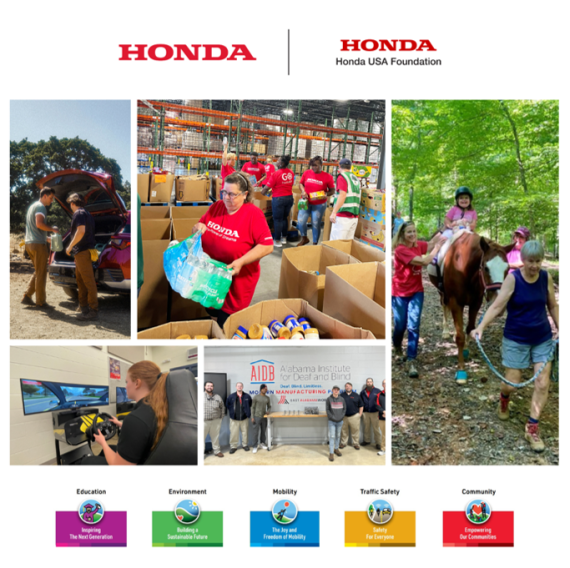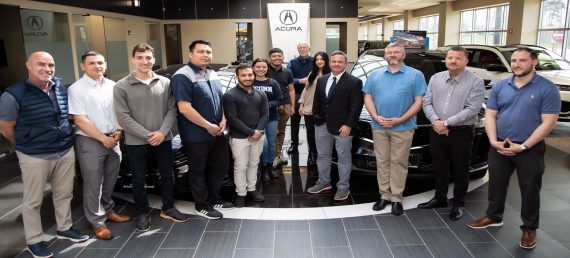Honda Conference Highlights Initiatives to Reduce Impact on Environment
The Honda Green Conference North America, held every three years, brings together Honda facilities across sales, manufacturing, R&D and purchasing, with the common goal of sharing ways to help Honda lead efforts in creating a zero-emission society. This year’s event included representation from 14 different facilities spanning Canada, Mexico and the U.S.
“Reducing the environmental impact of our operations is not only the right thing to do, but it is also a key part of Honda’s 2030 environmental vision,” American Honda Corporate Sustainability Manager Raminta Jautokas told conference attendees. “We can only continue to grow and thrive if we protect our environment and continue to be a company that society wants to exist.”
Honda associates were invited to submit environmental projects that were successfully implemented between 2016 and 2019. Environmental impact areas ranged from energy use, water and waste reduction to biodiversity impact and nature conservation, with more than 70 teams applying for the conference.
Xavier Ferlet, Principle Engineer for Honda Performance Development, noted that the current Honda FC8 INDYCAR engine, reduced greenhouse gas emissions upon introduction in 2012 and was the first Honda INDYCAR race engine designed and developed completely in the U.S. The FC8 engine, which will race until the end of 2021, uses E85 fuel (made of 85% ethanol and 15% gasoline) and direct injection. The twin-turbocharged engine design has resulted in multiple wins for the brand, including four Indy 500 wins, two Manufacturers’ Championships and two Drivers’ Championships.
“Traditionally, motorsports has been used as a proving ground for new technology,” Ferlet said. “The next challenge is to develop racing capable technology that is environmentally friendly.”
Transportation Efficiency, which coordinated efforts across seven different Honda manufacturing facilities to reduce emissions related to truck travel by improving trailer fill and eliminating unnecessary shipments, was recognized with the Largest Environmental Impact Award. Team lead Matt Geiger from Honda of America Mfg. reported an annual reduction of 5.5 million miles and 900,000 gallons of diesel, resulting in a reduction of over 7,000 metric tons of CO2.
In addition to the 12 teams that presented, the conference drew strong support from top Honda leaders, including President & CEO Shinji Aoyama, who kicked off the conference, Honda of America Mfg. Senior Vice President and General Manager for Planning and Strategy Bob Nelson, and Executive Vice President Rick Schostek.
Not only did the conference presentations focus on environmental stewardship, but the event planning team also implemented a sustainable events strategy in accordance with best practices in event sustainability in accordance with the internationally recognized ISO 20121 Event Sustainability Management System standard. The event-related emissions (including energy usage and attendee travel) are measured and the event is certified as a Carbon Neutral Event through the coordination of verified carbon offsets. Additional efforts included two living wall panels that were replanted following the event, reusable name badges made of FSC-Certified cherry from well-managed forests, and 100% recyclable cups used by attendees for beverages for the duration of the conference.

